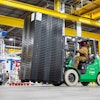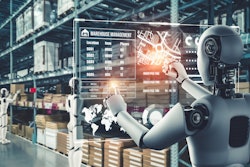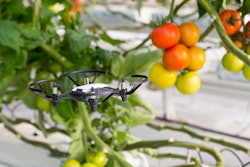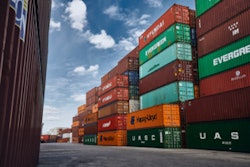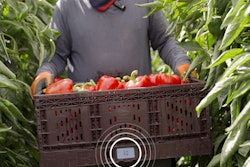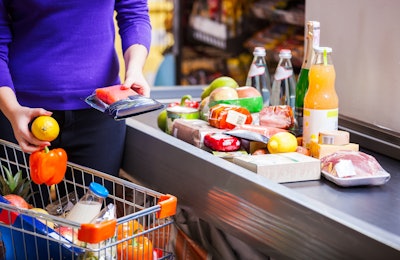
Every month, dozens of high-volume food recalls are announced in the United States with tragic consequences, including severe sickness and even death. Lack of traceability is the main obstacle to safe and sustainable consumption and continues to be a massive problem for governments, companies and consumers. Companies are expected to take full responsibility for products they put on the market, but in reality, they have an extraordinary lack of information about or control over those products beyond the point of manufacturing. In a world where supply chains are increasingly complex and society is reliant on their efficiency, making the full product journey visible through traceability is key to securing transparency and trust. Serialization technology tracks products through their entire supply chains while ensuring the products that people consume (such as food and beverage products) are safe prior to use.
Food supply chains have always presented health and safety concerns. From E. coli breakouts to food quality issues and packaging or labeling errors, the common thread in each case is insufficient product traceability. About 48 million people in the United States (one in six) get sick, 128,000 are hospitalized and 3,000 die each year from foodborne diseases, according to recent data from the Centers for Disease Control and Prevention. As food recalls continue to rise each year, not only is food safety a rising threat to consumers, but also poses serious compliance and reputational brand risks when companies are unable to monitor the quality of their product inputs.
As the U.S. Food and Drug Administration (FDA) is expected to impose more regulations around food safety, enhanced and comprehensive traceability through access to records of key data elements associated with critical tracking events in food production and distribution will be required. In outlining its Foodborne Outbreak Response Improvement Plan (FORIP) plan in December 2021, the FDA called for “faster and more streamlined investigations to identify and remove contaminated food from the market, and more effective investigations to identify deficiencies in the food system to help prevent similar outbreaks in the future.”
For its part, the FDA is committed to updating the technology that supports food safety and recalls within their New Era of Smarter Food Safety blueprint. This initiative, which launched in July 2020, rests upon four pillars, the first of which is tech-enabled traceability. As part of its latest budget, the FDA requested an additional $43 million to support strengthening data-driven approaches to protecting consumers, strengthening data sharing and predictive analytics capabilities while enhancing digital traceability to more quickly respond to outbreaks and recalls for human and animal food.
Traceability through serialization
Both internal and external forces play a role in how companies manage their supply chains, which have a direct impact on food safety. By giving every product a unique, secure, and traceable digital identity, brands can track and trace products from creation to consumption, garnering deeper insights into the product journey and the entire lifecycle of a product. In addition to being compliant with government regulations, traceability creates additional value for brands and consumers through improved internal processes, enhanced consumer experiences and better decision making when an event occurs. In fact, according to the International Trade Centre, traceability technology can help reduce the scope of a recall by 50-95%.
In addition to risk and compliance considerations, big brands can suffer a major blow to consumer trust and drain resources on recovery and remediation as a result of a food recall. By tracking an individual product’s unique journey through each step of the supply chain, brands can proactively use real data and insights to resolve issues related to product sustainability, production efficiency, regulatory compliance and risk. With cloud-based technology, companies today have an unprecedented ability to create, manage and execute inspection programs to detect challenges in their supply chain more easily.
Supply chain visibility is not just table-stakes for businesses – consumers increasingly demand it.
Aside from the imminent health and safety risks food and beverage companies take on due to insufficient supply chain traceability, its economic effects are catastrophic. Looking at the financials alone, the average cost of a recall for a food company is $10 million in direct costs – that’s in addition to brand damage and lost sales, according to a joint industry study by the Food Marketing Institute and the Grocery Manufacturers Association. Food and beverage companies in particular face increasing legislative requirements from authorities and increasing transparency and sustainability expectations from consumers.
Even more consequential than creating waste as part of a food recall, gaps in traceability can also lead to steep fines, imprisonment of company executives, or even bankruptcy for the organization. Food and beverage companies thus have an added incentive to combat these financial and potentially legal, woes, as this is where investing in robust traceability technology underscores its value. Unit-level serialization and traceability has two key areas of benefits for the food industry:
- It allows a consumer to know and understand better what they are consuming and where it has come from. This can assure them of the quality of genuine products while conversely alerting them to fakes or sub-par products. At the same time, it better equips consumers to make more informed decisions from a variety of perspectives such as health, sustainability and ethical practices.
- It also provides producers vastly improved visibility into their product value chains. This can lead to improved consumer satisfaction and engagement, better products that gain from direct consumer feedback as well as more efficient and resilient supply chains with reduced waste.
The Coronavirus disease (COVID19) pandemic and growing awareness among sustainability and food safety-conscious consumers underscore the need for cost-effective, scalable solutions that lower the barriers to implementing technology-enabled traceability solutions. From source to consumer, data is associated with the product through a code that establishes a safe, transparent and enhanced food product experience. Data-driven traceability can insulate a plethora of food and beverage companies from regulatory, legal and reputational risk – it is just up to these companies to implement what is out there. By empowering organizations to proactively track product movements through the supply chain in real time and minimize the costly destruction of good products, traceability mitigates both reputational and compliance risks.
Without a strong traceability program that includes access to real-time data, companies are putting themselves – and the public – at risk.

